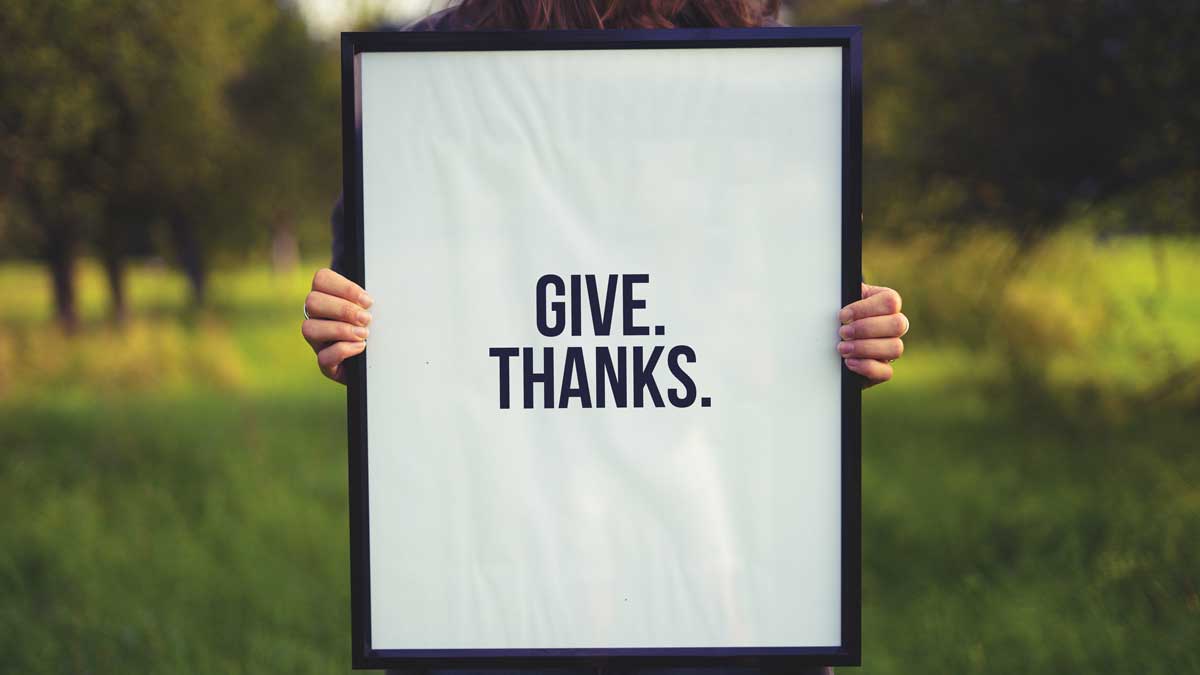What are you thankful for? It’s a good question to ask this time of year. We ask this at church, maybe around meal tables at Thanksgiving, and within our families. It’s good to take time to celebrate together and give thanks.
Gratitude is not something I express all the time. Certainly, I say “thank you” for gifts given, kind words shared, or doors opened, but I forget to give thanks sometimes. This time of year, we are invited to be mindful of gratitude. We don’t always give thanks for the routine occurrences of our day such as meals, driving in a car that works, or sleeping in a cozy bed in a warm house on such cold days.
Giving thanks goes beyond saying thank you. It’s a deeper recognition of the interconnectedness of life. The late Catholic priest and spiritual author Henri Nouwen wrote:
“Gratitude…goes beyond the “mine” and “thine” and claims the truth that all of life is a pure gift. In the past I always thought of gratitude as a spontaneous response to the awareness of gifts received, but now I realize that gratitude can also be lived as a discipline. The discipline of gratitude is the explicit effort to acknowledge that all I am and have is given to me as a gift of love, a gift to be celebrated with joy.
Gratitude as a discipline involves a conscious choice. I can choose to be grateful even when my emotions and feelings are still steeped in hurt and resentment. It is amazing how many occasions present themselves in which I can choose gratitude instead of a complaint. . . . The choice for gratitude rarely comes without some real effort. But each time I make it, the next choice is a little easier, a little freer, a little less self-conscious. . . . There is an Estonian proverb that says: “Who does not thank for little will not thank for much.” Acts of gratitude make one grateful because, step by step, they reveal that all is grace.
I pray that, during this season, you will find time to give thanks.
“Rejoice always, pray continually, give thanks in all circumstances.”
1 Thessalonians 5: 16-17
